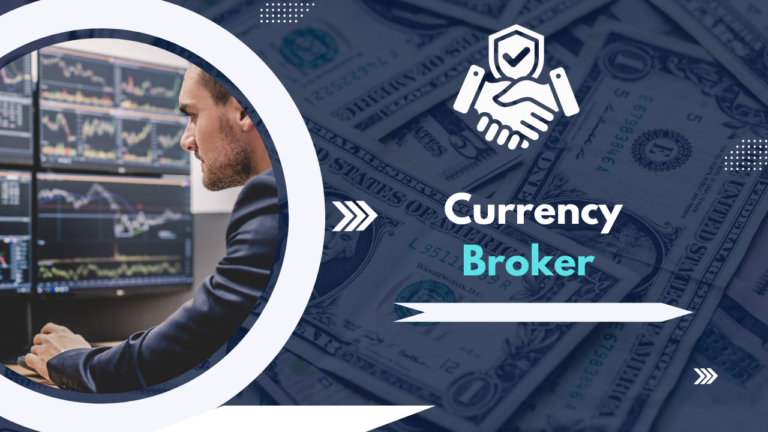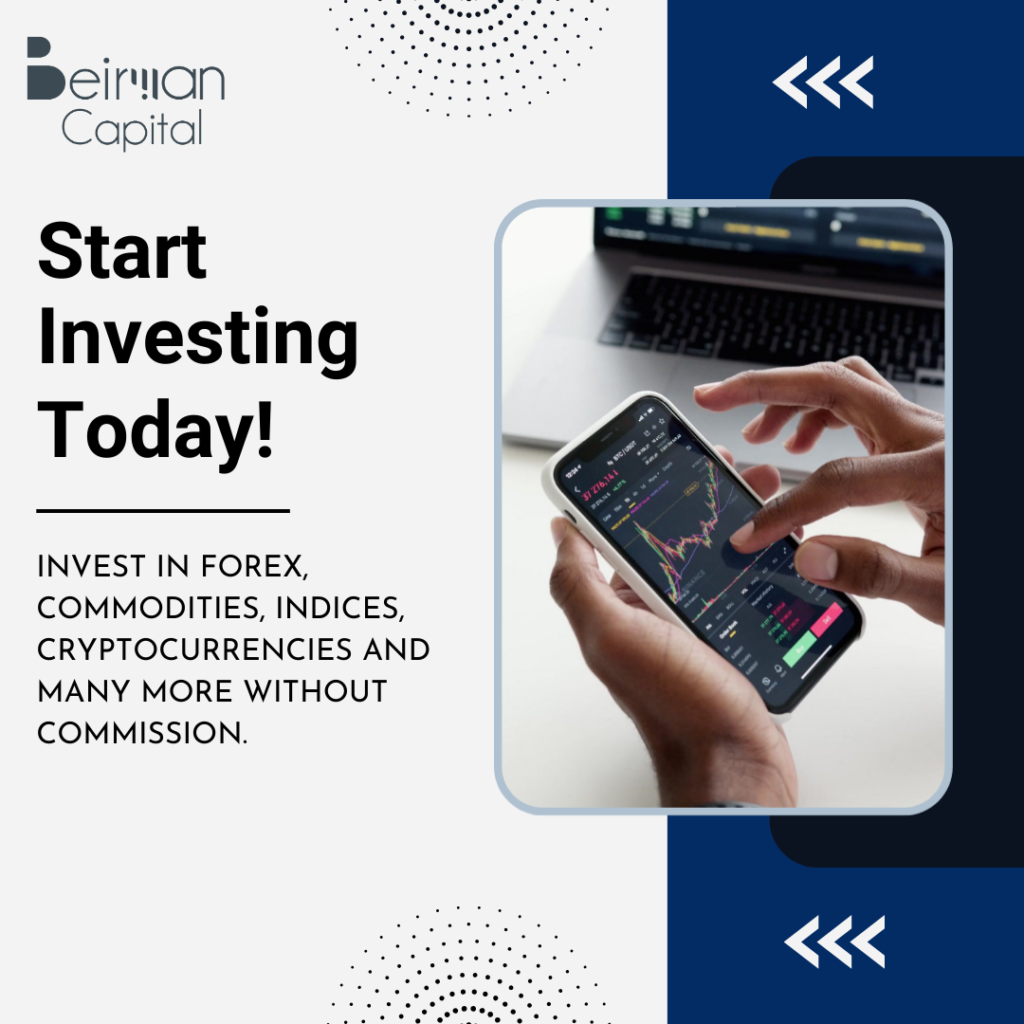Currency Broker: Meaning, Role, and Why Do You Need It
Currency Broker is an intermediary between the trader and the forex market. Learn the meaning of a forex broker, why you need it and how they make money.
Table of Contents
Whenever you think of starting forex trading, the most common word that strikes your mind is currency broker. Newbies generally struggle to understand the role of brokers, why traders need them, and how they make money.
Being a reputable forex broker, Beirman Capital has many clients who ask different questions before subscribing to services. If you also have these questions, this blog is for you. Here, we will discuss all the things you need to know about brokers’ platforms.
Understanding the Concept of Currency Broker
The currency market is a place where traders enter with the aim of making money from currency price fluctuations. Now, suppose a person is thinking of starting forex trading to enhance the secondary income source. So, in this case, how and where the person will trade?
The answer is on the broker platform. The currency market is a global market where all the activities take place over the Internet. Traders need a range of resources and tools to trade in currencies. And a forex broker provide these things to traders.
A forex broker is a platform that works like an intermediary between the trader and the foreign exchange market. Traders can access the currency market by opening an account with a broker and get all the things they need for trading.
Types of Forex Broker
There are two main types of forex brokers: ECN and dealing desk. Let us understand the key difference between them:
Dealing Desk Broker:
The dealing desk is popularly known as the trading desk broker. These kinds of brokers act like market markers and provide liquidity to traders. Such brokers even act like counterparties to brokers and take opposite positions. It means that when traders earn a profit, they earn a loss, and vice versa. They have fixed spreads and enjoy control over the bid, and ask prices in the currencies.
ECN or Non-dealing desk broker:
ECN Brokers act like middlemen between the market and the broker. They only provide a platform to buy or sell currencies and have no relation with the profit or loss of a trader.
Role of a Currency Broker
Many traders think that brokers just provide a platform to buy or sell currencies. But that’s not it. A broker is the key pillar of your successful trading journey. The platform can help you in many ways; here are the major ones:
Access to currency pairs:
Forex is the largest financial market, and traders can trade in over 180 currency pairs. However, not all broker platforms provide access to all the pairs. The number of currency pairs depends on the broker-to-broker.
Traders can trade in major, minor, and exotic pairs with different market conditions. The best currency broker will provide you with a maximum number of pairs. It will help you diversify your trade capital into different pairs and select the right ones accordingly. So, when selecting a trading platform, make sure your broker offers a diverse range of trading options.
User-Friendly Platform:
All the currency buying and selling activities take place over the Internet. This means that to trade efficiently, you need the right platform. A currency broker provides you with a user-friendly website, apps, trade terminal, and other digital resources. So that traders can trade currencies anytime from anywhere with just an internet connection.
Educational Resources:
Knowledge is a prerequisite for starting trading in the currency market. Most forex brokers provide educational and training resources for beginners as well as advanced traders. These can be in the form of written PDFs, webinars, audio and visual content. So that traders can learn trading and place trades on the same platform.
Leverage:
Leverage is the most useful facility that a trading broker offers. Basically, leverage is a kind of loan that a broker provides to the trader for placing large trades with small capital. You may have come up with the broker offering leverage of 1:500, but have you ever thought what it means?
It means that with a capital of 1$, you can place a trade worth 500$. Leveraged trading in foreign currency has become increasingly popular. Different brokers have different leverage ratios, and this ratio plays a crucial role in selecting the right one.
Deposit and Withdraw facility:
To trade in a financial market, you need funds; however, where do you keep these funds? The answer is on the broker platform. Traders need to open an account with a broker and deposit funds. Using these funds, they can place trades; if traders earn profits, the capital will increase, and if traders suffer a loss, the capital the loss will be deducted. So basically, you can safely deposit funds and withdraw them anytime with a trusted broker.
Transaction Speed and diverse orders:
The Forex market has dynamic market conditions, and these conditions can change even within minutes. So, timely execution of trades is a must; delays can result in negative outcomes.
Thus, traders need ultra-fast speed, and that your broker will give. In addition, a currency can be bought and sold in many ways. Your broker provides you with a range of order types to execute the way you want.

Advanced and Automated Tools:
Traders need a diverse range of tools for timely order execution, market analysis, risk management, strategy implementation, and backtesting. A reputed broker will provide all such tools like an economic calendar, profit or pips calculator, guaranteed stop loss, negative balance protection, forex robots, and many such tools. These tools help traders to trade by efficiently managing the high level of risk associated with currency trading.
Traders Support:
A trader may need their broker at any time while analyzing or executing trades. They may face some errors or want some guidance. In such cases, brokers have round-the-clock customer support; they assist traders throughout the journey. So that traders can ask all their queries and find solutions to their problems.
How Currency Brokers Make Money
We have a look at the features of how brokers help traders. You must be thinking about why they do so. Brokers charge traders money against their services. In the currency market, brokers generally earn in two ways: the first one is spread, and the second one is commission.
Currency spreads are the difference between the ask and bid price. Suppose the bid price of an EURO /JPY is 123.523, and the ask price is 123.530; their difference, which is 0.7, is regarded as a spread. So, in this case, on every unit, a broker will earn a spread of 0.7.
Currency brokers can even charge you in the form of commissions. They charge a specific percentage on each trade. A broker with wide spreads has no or low commission, and a broker with a tight spread can charge you a significant amount.
Apart from spreads and commissions, a broker may charge additional fees, including withdrawal or deposit fees, inactivity fees, fees for tools or educational resources, and others. However, the additional charges depend on the broker-to-broker. At Beirman Capital, we earn commissions and spreads. Our spreads are tight and commission low, and all the information regarding them is available on our website. Apart from these, we don’t charge any other fees.
Wrapping Up
Currency Broker is a must to start your forex trading journey. Whether you like it or not, you have to open an account with a broker. Selecting a broker is a crucial task, especially when the number of such platforms is increasing.
So, while selecting a broker, analyze the features we have discussed above. In addition, broker regulation and registration are the most important factors. Traders should go for a registered broker with a license from a top-tier financial conduct authority or securities and exchange commission. Also, make sure to open a demo account first to analyze the platform’s products and services.
FAQs
What is a currency broker?
A forex broker is a platform that works like an intermediary between the trader and the foreign exchange market. Traders can buy and sell currencies on the platform.
Why do you need a forex broker?
Traders need currency brokers to access the forex market and trade currencies online. They need to open an account with a broker platform to get all the things they need for trading.
Do you need a broker for forex trading?
Yes, it is necessary to have a broker to trade in the currency market.
What services do forex brokers offer?
- Wide Range of Currency Pairs
- User-Friendly Platform
- Educational Resources
- Leverage and Margin Facility
- Deposit and Withdraw Facility
- Transaction Speed and Diverse Orders
- Advanced and Automated Tools
- Round the Clock Support
How Currency Brokers Make Money?
In the currency market, brokers generally earn in two ways: the first one is spread, and the second one is commission. Check the spreads and commissions of a broker before subscribing to its services.
Get Complete Forex Trading Assistance



